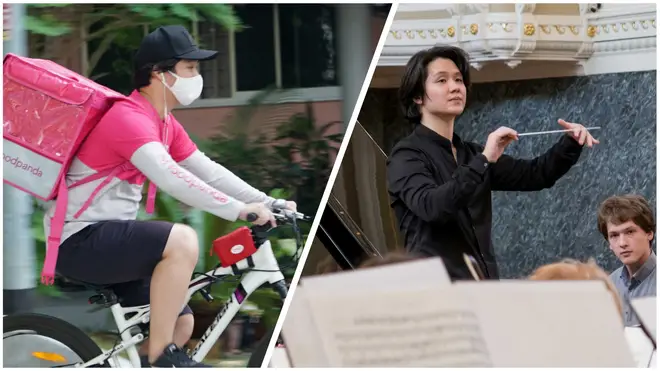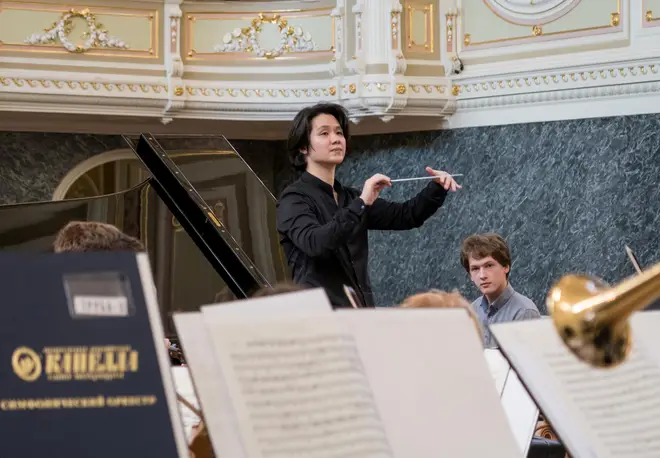Singapore ballet conductor swaps baton for bike in pandemic delivery job
12 March 2021, 11:34 | Updated: 12 March 2021, 11:46

‘As a conductor, I brought food to the soul. Now, I bring food to people.’
A year ago, Chiya Amos was leading dozens of orchestras in ballet and opera performances around Russia.
Now, since the coronavirus pandemic has brought live music to a screeching halt, the young conductor pedals around Singapore for up to 12 hours a day and nearly seven days a week, delivering food to people.
After 10 months out of a job, the conductor flew back from Russia to Singapore in the hope of finding work in music, but to no avail.
Chiya says he has applied for more than 40 jobs since last January but hasn’t heard from most of them.
“Many of us musicians are still out of a job, we are sort of displaced,” the 30-year-old tells Reuters.
Read more: ‘I went from singing arias to being a hospital porter’ >

Restrictions are finally beginning to ease in Russia, but Chiya says the pandemic has stunted gig offers for foreign conductors.
To stay connected to music, Chiya studies music, specifically Verdi operas, between shifts. He also listens to symphonies on his headset, while delivering an average of 30 snacks, drinks and meals a day.
While his income is similar to last year, the conductor now works much longer hours, and the physical exertion is taking its toll.
“I miss being on stage. Of course, I miss collaborating with people, I miss waving my hands and making magic music,” he says.
But the two jobs aren’t as dissimilar as they might appear. “We bring food to people, we bring sustenance to people,” Chiya says. “And as a conductor, we work with orchestras to bring sustenance to the soul and the mind.”
Read more: How music is helping these healthcare workers get though the pandemic >

Hospital staff perform ballet routine for young cancer patient
Gigs are still hard to come by, and life separated from his Russian wife, who was unable to stay with him in Singapore, isn’t easy.
But he’s riding it out. Chiya now has one concert booking for Tokyo’s Spring Festival in April, and he hopes more venues will reopen as the vaccinations roll out globally.
He also feels his new job has allowed his music-making to evolve.
“I conduct a lot of Verdi,” he said. “There’s a lot of tragedy in it, and I think this experience sort of hardens me and I’m able to express my emotions better. I feel like I’ve matured a few years, even though it’s only been a year.”


































